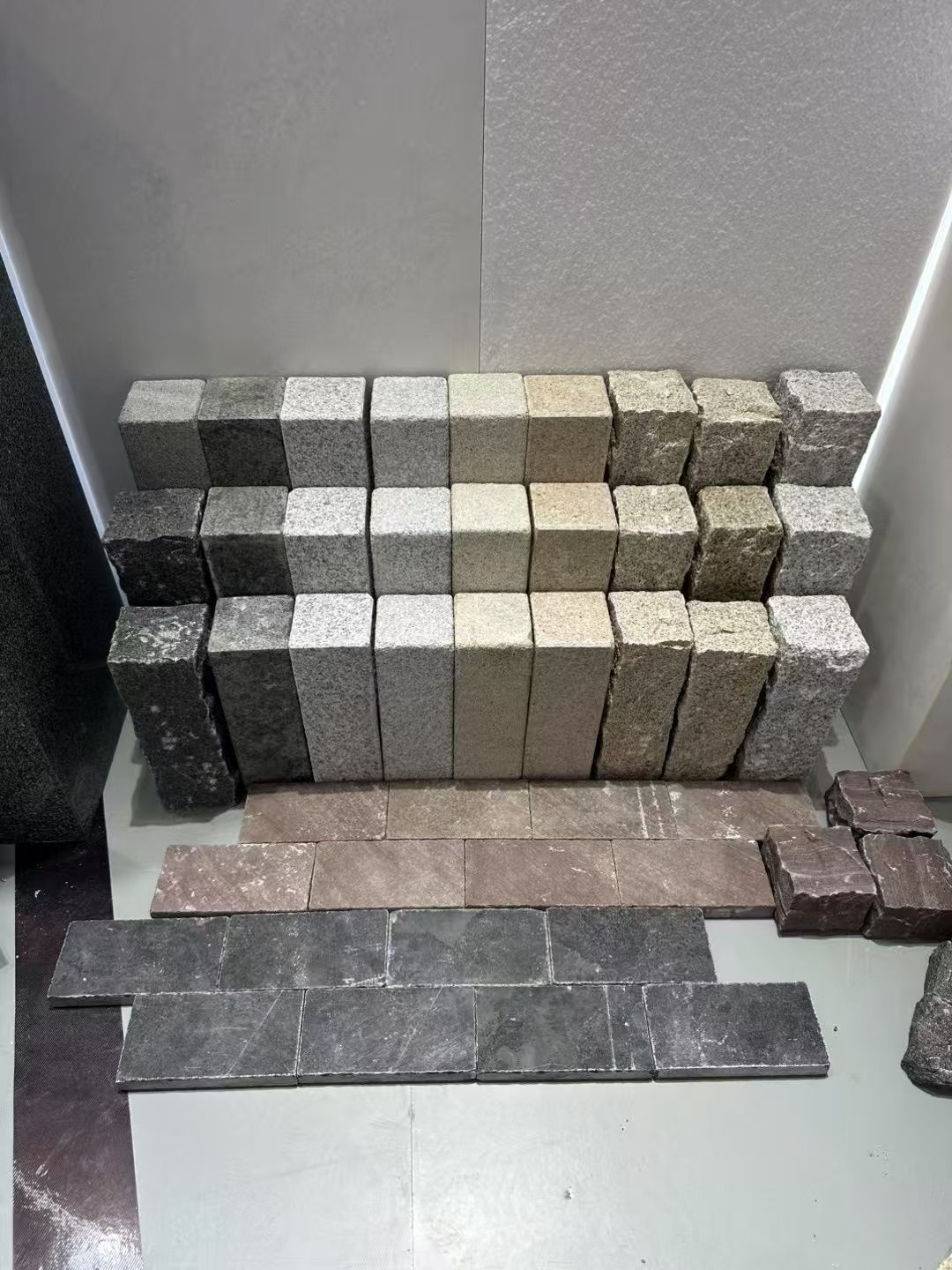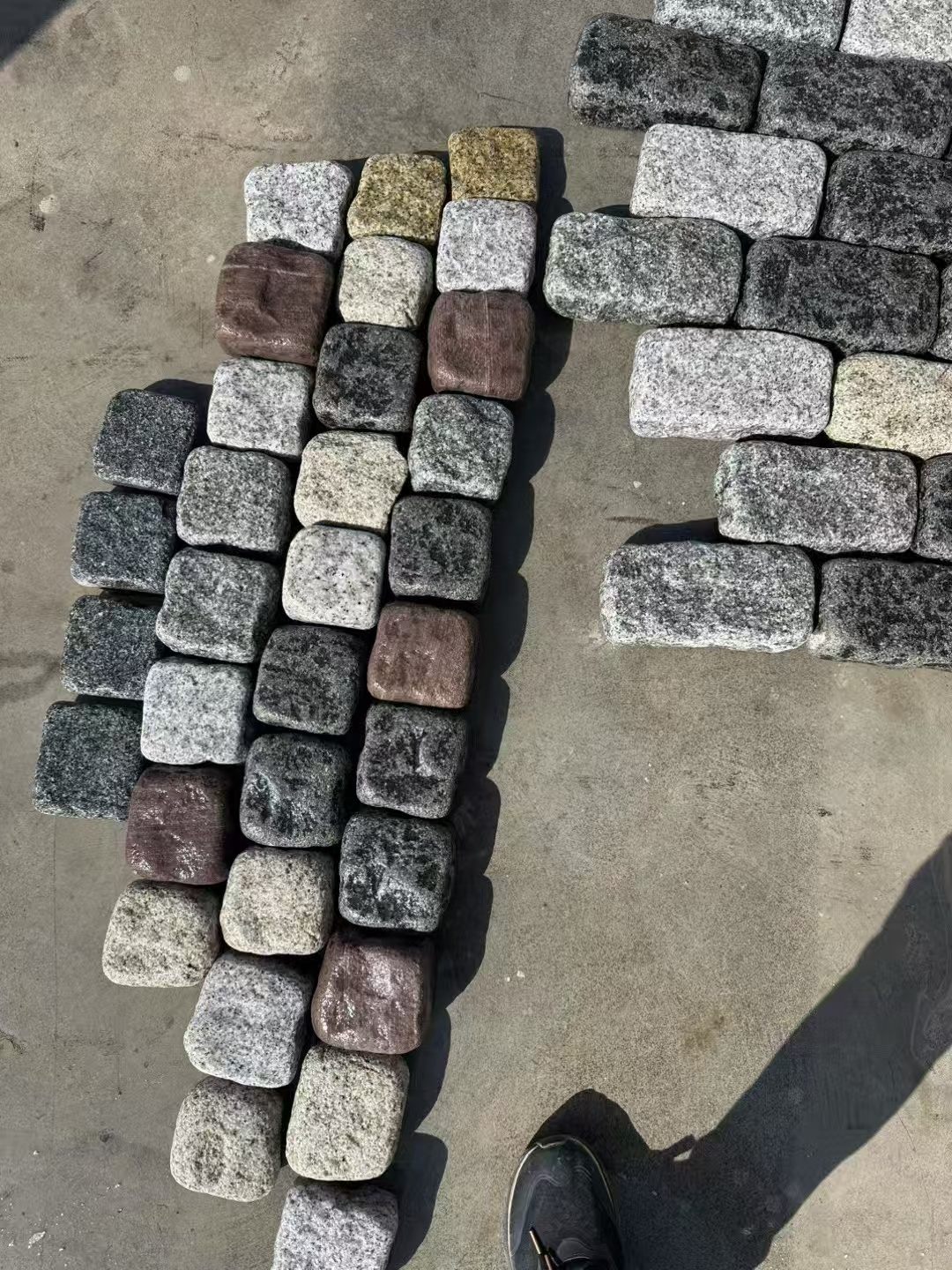Product
We Have Dedicated Ourselves To The Wonderful World Of Stone.

Category:
Detailed
# Introduction to Paving Stones
Paving stones are a popular choice for both residential and commercial landscaping, providing a durable and aesthetically pleasing surface for walkways, driveways, patios, and more. These stones come in various materials, shapes, sizes, and colors, allowing for versatile design options that can enhance any outdoor space.
# Types of Paving Stones
1. **Concrete Pavers**: Made from molded concrete, these pavers are available in a variety of shapes and colors. They are highly durable, resistant to weather conditions, and can mimic the appearance of natural stone.
2. **Natural Stone Pavers**: These include materials such as granite, limestone, slate, and sandstone. Each type of natural stone has its unique texture and color, providing a timeless and elegant look.
3. **Clay Bricks**: Made from fired clay, brick pavers offer a classic and warm appearance. They are known for their strength and longevity, making them an excellent choice for high-traffic areas.
4. **Porcelain Pavers**: A newer option in the paving stone market, porcelain pavers are made from high-quality ceramic materials. They are extremely durable, resistant to staining, and available in various designs, including those that mimic natural stone.
# Advantages of Paving Stones
- **Durability**: Paving stones are designed to withstand heavy loads and harsh weather conditions, making them a long-lasting choice for outdoor surfaces.
- **Low Maintenance**: Unlike traditional concrete surfaces that may crack over time, paving stones can be easily replaced if damaged. Regular cleaning and occasional sealing are typically sufficient to maintain their appearance.
- **Aesthetic Appeal**: With a wide range of styles, colors, and textures available, paving stones can be customized to fit any design theme, enhancing the overall look of outdoor spaces.
- **Eco-Friendly Options**: Many paving stones are permeable, allowing water to drain through the joints and reducing runoff. This feature can help manage stormwater and support local ecosystems.
- **Versatility**: Paving stones can be used in various applications, including driveways, walkways, patios, pool decks, and garden paths, making them a versatile choice for any landscaping project.
# Installation Process
The installation of paving stones involves several key steps:
1. **Planning and Design**: Determine the layout and design of the paved area, taking into account drainage and aesthetics.
2. **Excavation**: Remove existing soil and vegetation to create a stable base for the paving stones.
3. **Base Preparation**: Install a layer of gravel or sand to provide drainage and support for the pavers.
4. **Laying the Pavers**: Arrange the paving stones according to the planned design, ensuring they fit snugly together.
5. **Joint Filling**: Fill the gaps between the stones with sand or polymeric jointing material to prevent shifting and weed growth.
6. **Compaction**: Use a plate compactor to ensure the stones are firmly set in place.
7. **Finishing Touches**: Clean the surface and apply any sealant if desired to enhance durability and appearance.
# Conclusion
Paving stones are an excellent choice for enhancing outdoor spaces with their durability, aesthetic appeal, and versatility. Whether you are looking to create a welcoming pathway, a stylish patio, or a robust driveway, paving stones can provide the perfect solution. With various options available, it’s essential to consider your specific needs and preferences when selecting the right type of paving stone for your project.


Paving stones are a highly durable and visually appealing option for enhancing both residential and commercial outdoor spaces. Designed for applications such as driveways, walkways, patios, pool decks, and garden paths, these units provide a strong and stable surface capable of withstanding heavy loads and harsh weather conditions. Available in a variety of materials including concrete, natural stone, clay brick, and porcelain, paving stones offer unmatched design flexibility to complement any architectural style or landscape theme.
One of the key advantages of paving stones is their exceptional durability. Unlike poured concrete, which is prone to cracking, individual pavers can handle shifting ground and temperature changes without significant damage. Their interlocking design distributes weight evenly, making them ideal for vehicle traffic and pedestrian use. Additionally, most paving stones require low maintenance—routine cleaning and occasional sealing help preserve their color and structure, while damaged pieces can be easily replaced without redoing the entire installation.
Paving stones also offer extensive aesthetic versatility. With a wide selection of colors, shapes, sizes, and finishes, they can be arranged in unique patterns like herringbone, basket weave, or circular designs to create custom looks. Natural stone pavers lend timeless elegance, while concrete and porcelain options provide modern appeal with consistent quality and color retention.
Many paving stone systems are eco-friendly, especially permeable pavers that allow stormwater to drain naturally, reducing runoff and supporting groundwater recharge. This makes them an sustainable choice for environmentally conscious projects.
Whether used for a rustic pathway or a contemporary driveway, paving stones combine strength, beauty, and functionality—making them a preferred material for landscapers, architects, and homeowners seeking lasting value and visual impact.
Key Words:
Previous Page:
Next Page:
Online Consultation
Please fill in your phone number and email information. We will contact you as soon as possible